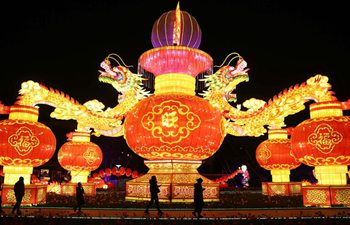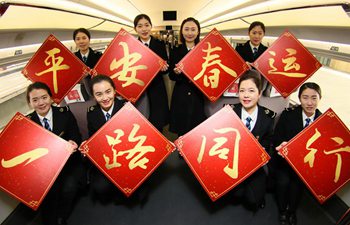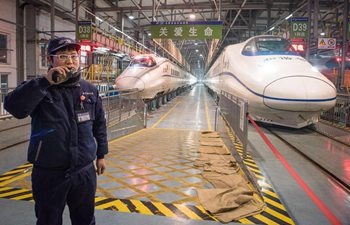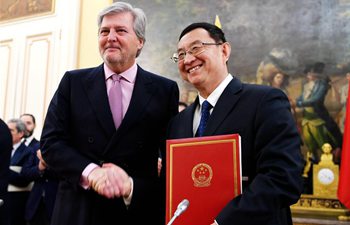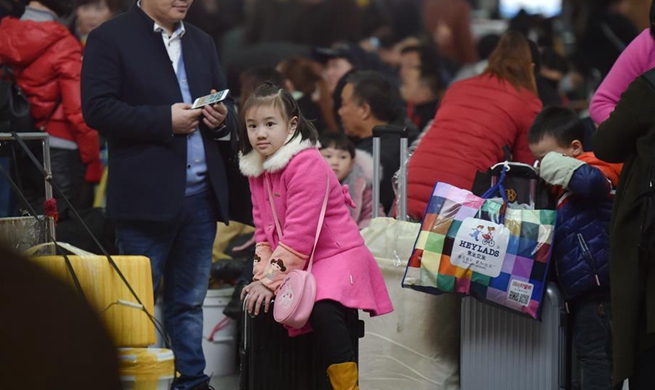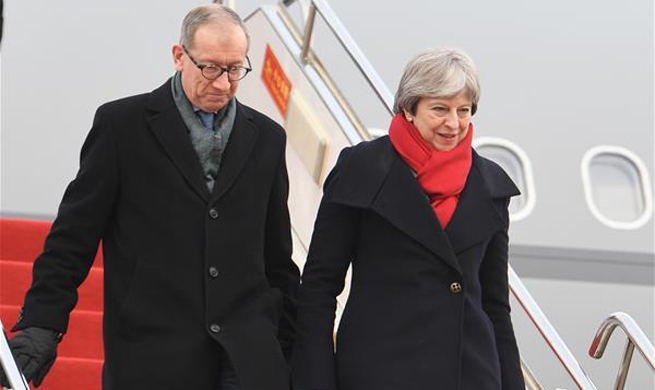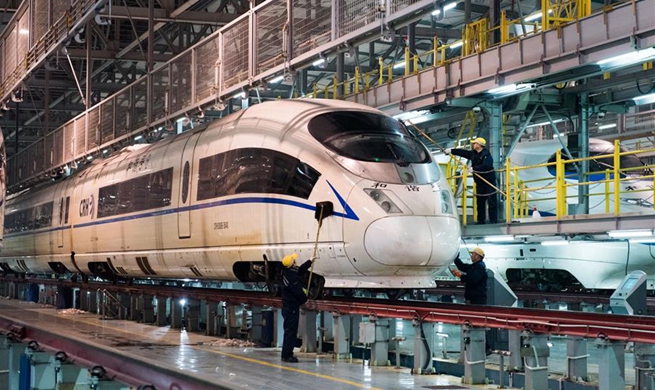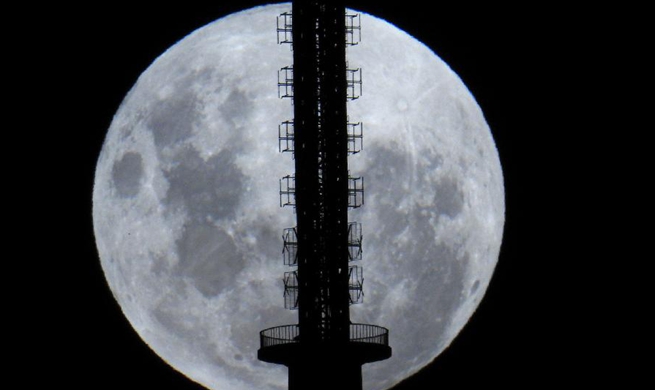by Tichaona Chifamba
HARARE, Jan. 31 (Xinhua) -- Zimbabwean President Emmerson Mnangagwa's recent trip to the World Economic Forum (WEF) in Davos, Switzerland, has been widely hailed as a great success with Zimbabwe sloughing off the pariah state tag and assuming that of a state undergoing rebirth and full of opportunities.
Mnangagwa attended the 48th edition of the WEF from Jan. 23 to 26 and met several high profile leaders in finance, business and politics and the European Union.
Analysts say a lot of international goodwill was created by the trip, the first by a Zimbabwean head of state, amid high expectations that the country could return to its former glory days as the "jewel of Africa."
University of Zimbabwe political science professor Charity Manyeruke said the immediate success of the Davos trip had to do with the country's image in terms of its willingness to reengage with the international community.
The invitation for Mnangagwa to attend the forum had shown international interest in Zimbabwe and was also a confirmation that the country was part of the international community, she added.
"Also his engagements with international institutions such as the World Bank and International Monetary Fund (IMF) showed that Zimbabwe wanted to be part of the global economic community.
Mnangagwa held discussions with IMF managing director Christine Lagarde and World Bank chief executive officer Kristalina Georgieva, following which the IMF issued a statement, saying that it welcomed his commitment to stabilize the economy.
"Zimbabwe is also sending a message of opening up to the international community and he has boosted investor confidence by saying that foreign investments will be protected. So therefore it makes Zimbabwe an important investment destination," Manyeruke said.
Mnangagwa also met African Development Bank president Akunumwi Adesina who said he had commended him for the reforms he had already put in place.
State-run The Herald newspaper reported that a high-level delegation would travel to Harare, capital of Zimbabwe soon for talks with the government, with the resolution of Zimbabwe's external debt arrears among the issues to be discussed.
Manyeruke added that Mnangagwa's assurances on governance issues and the fight against corruption were also important in boosting the confidence of the international community, since under former President Robert Mugabe's government many cases involving corruption had been ignored.
The announcement that elections would be held this year and that the international community would be allowed to observe them also gave confidence that the government was intent on improving governance.
Economist and former president of the Zimbabwe National Chamber of Commerce Luckson Zembe said Mnangagwa had scored points on a number of issues.
"First, the presence itself of the President created an opportunity to present the Zimbabwean story and re-engage with the international community. Meetings with other leaders were also positive and now we have the United Kingdom responding positively and sending the prime minister's representative to come and engage with Zimbabwe," he said.
Mnangagwa said on Tuesday that he expected to meet Prime Minister Theresa May's special envoy during the first week of February to discuss matters of mutual interest, including the economy and Zimbabwe's possible return to the Commonwealth which it left in 2003 over sharp differences involving land.
Zembe also acknowledged the European Union's interest in supporting Zimbabwe and trying to resolve all outstanding issues.
"The intentions of the Zimbabwean government were well marketed. What is now key is implementation and putting in policies and follow-ups that buttress those intentions. Can we now see real issues on the ground in terms of policies.
"Once we have appropriate policies implemented and impediments removed then we will move from intentions to action. He has sold the country very well but we must move from the international community saying 'this sounds good' to saying 'this is good'," Zembe said.
He added that the holding of free and fair elections would go a long way in assuring the international community that the country was serious about good governance and democracy.
Political commentator Tichaona Muchapera said Zimbabwe was back on the mainstream narrative not as a pariah state but a state under rebirth as shown by Mnangagwa's meetings with global leaders.
He added that Mnangagwa had "brought a bag of hope, but empty on detail, time frame and implementation," although he managed to reconnect with the global power players.
"His appearance on CNN, BBC, online and other outlets as platforms of re-engagement was a publicity coup and created international goodwill, but that goodwill has to be reciprocated by real reforms," Muchapera said.
The Davos trip, which was Mnangagwa's first outside Africa since taking over from Mugabe in Nov. 2017, has raised expectations among Zimbabweans that the warmth that surrounded him among global leaders will translate into substantive action and spur economic growth.
Speaking about the trip on social media, Mnangagwa said Zimbabwe was once again being regarded as a member of the international community.
He said he was received with warmth and excitement by leaders from across the globe, a real sign that Zimbabwe's isolation from the family of international nations was over.
"Once again we are a respected country, and global investors are genuinely curious about opportunities in the new Zimbabwe. Make no mistake -- the interest in investment opportunities is exploding.
"And my message to global leaders was simple: Zimbabwe is open for business. I set out my vision of a Zimbabwe with a thriving and open economy, with jobs for its youth and opportunities for investors," Mnangagwa said on his Facebook page.




